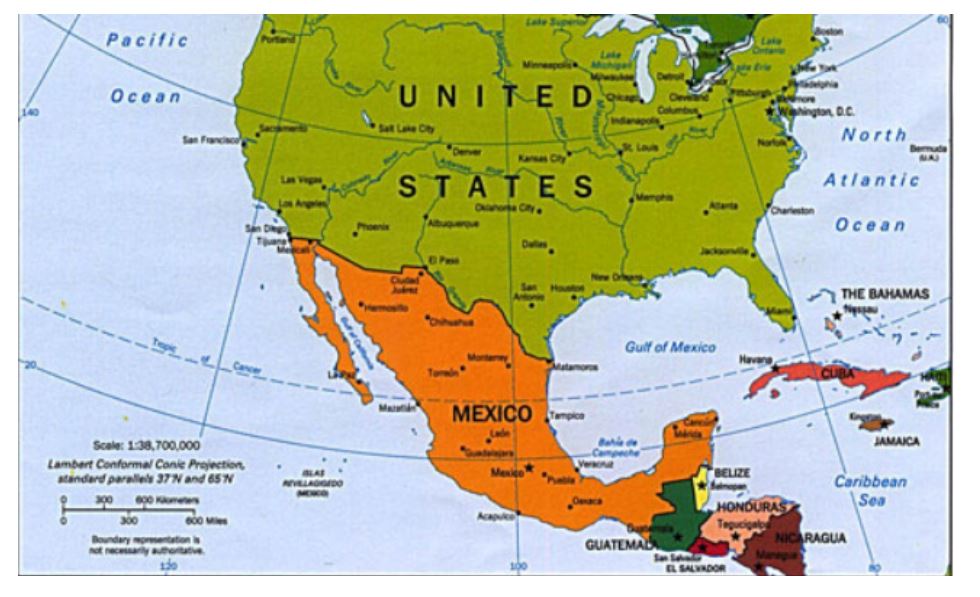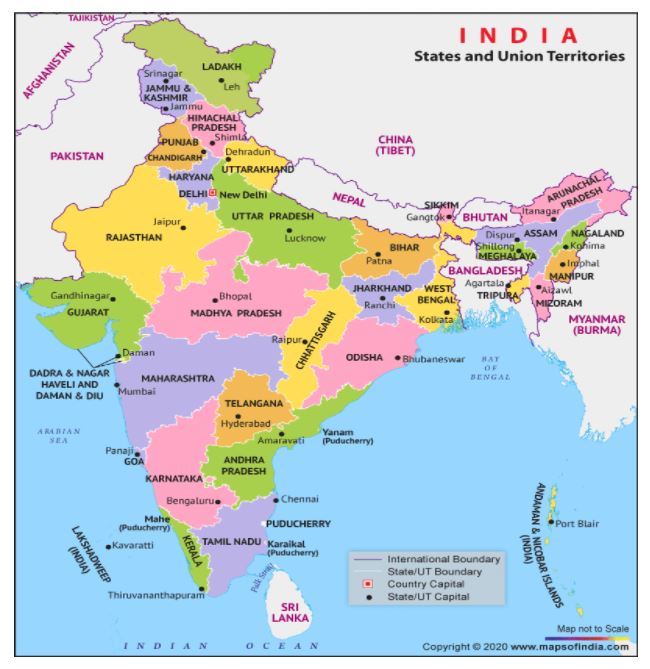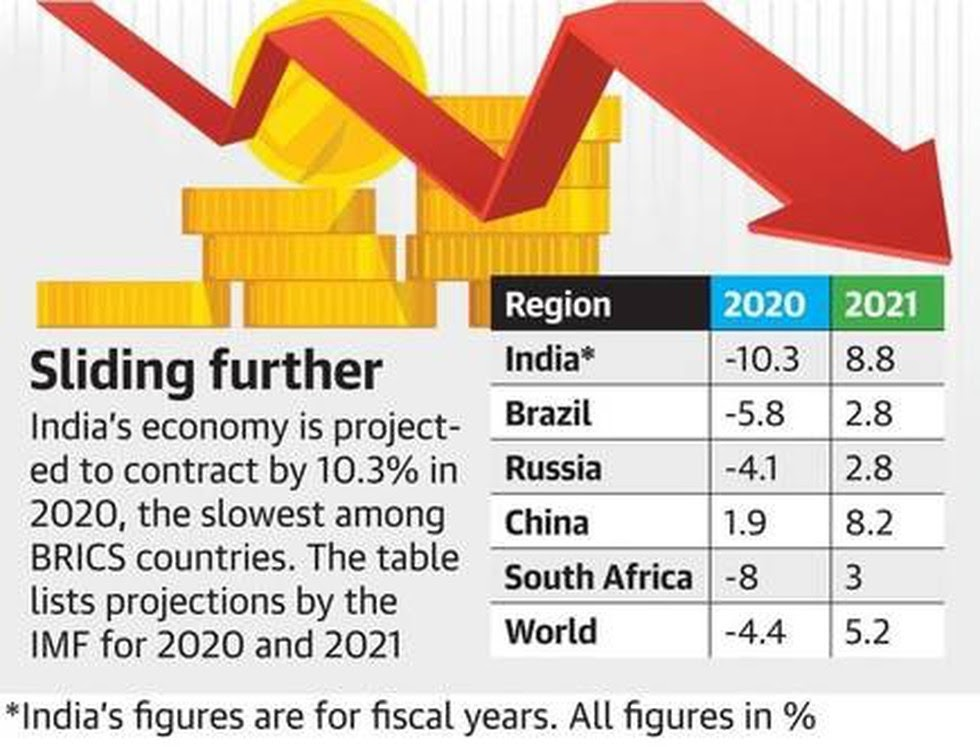IASbaba Daily Prelims Quiz
For Previous Daily Quiz (ARCHIVES) – CLICK HERE
The Current Affairs questions are based on sources like ‘The Hindu’, ‘Indian Express’ and ‘PIB’, which are very important sources for UPSC Prelims Exam. The questions are focused on both the concepts and facts. The topics covered here are generally different from what is being covered under ‘Daily Current Affairs/Daily News Analysis (DNA) and Daily Static Quiz’ to avoid duplication. The questions would be published from Monday to Saturday before 2 PM. One should not spend more than 10 minutes on this initiative.
This is a part of our recently launched, NEW INITIATIVE IASbaba’s INTEGRATED REVISION PLAN (IRP) 2020 – Road Map for the next 100 Days! FREE INITIATIVE!
We will make sure, in the next 4 months not a single day is wasted. All your energies are channelized in the right direction. Trust us! This will make a huge difference in your results this time, provided that you follow this plan sincerely every day without fail.
Gear up and Make the Best Use of this initiative.
Do remember that, “the difference between Ordinary and EXTRA-Ordinary is PRACTICE!!”
To Know More about the Initiative -> CLICK HERE
SCHEDULE/DETAILED PLAN – > CLICK HERE
Important Note:
- Don’t forget to post your marks in the comment section. Also, let us know if you enjoyed today’s test 🙂
- After completing the 5 questions, click on ‘View Questions’ to check your score, time taken and solutions.
Test-summary
0 of 5 questions completed
Questions:
- 1
- 2
- 3
- 4
- 5
Information
To view Solutions, follow these instructions:
- Click on – ‘Start Test’ button
- Solve Questions
- Click on ‘Test Summary’ button
- Click on ‘Finish Test’ button
- Now click on ‘View Questions’ button – here you will see solutions and links.
You have already completed the test before. Hence you can not start it again.
Test is loading...
You must sign in or sign up to start the test.
You have to finish following test, to start this test:
Results
0 of 5 questions answered correctly
Your time:
Time has elapsed
You have scored 0 points out of 0 points, (0)
| Average score |
|
| Your score |
|
Categories
- Not categorized 0%
| Pos. | Name | Entered on | Points | Result |
|---|---|---|---|---|
| Table is loading | ||||
| No data available | ||||
- 1
- 2
- 3
- 4
- 5
- Answered
- Review
-
Question 1 of 5
1. Question
Which state become the first state in the country to have high-tech classrooms or high-tech labs in all government-run and aided schools?
Correct
Solution (d)
- Kerala has become the first state in the country to have high-tech classrooms or high-tech labs in all government-run and aided schools
- As part of this flagship project of the government, high-tech labs have been set up in primary and upper primary schools and 40,000 classrooms in high school and higher secondary schools have been converted into smart classrooms.
- High-speed broadband internet has been ensured in 12,678 schools.
- The high-tech classroom project was implemented by Kerala Infrastructure and Technology for Education (KITE), the nodal agency for ICT education in schools.
- The Kerala government has also started digital classrooms known as ‘First bell’ to impart education to 41 lakh students in the state after schools shut due to the lockdown
Incorrect
Solution (d)
- Kerala has become the first state in the country to have high-tech classrooms or high-tech labs in all government-run and aided schools
- As part of this flagship project of the government, high-tech labs have been set up in primary and upper primary schools and 40,000 classrooms in high school and higher secondary schools have been converted into smart classrooms.
- High-speed broadband internet has been ensured in 12,678 schools.
- The high-tech classroom project was implemented by Kerala Infrastructure and Technology for Education (KITE), the nodal agency for ICT education in schools.
- The Kerala government has also started digital classrooms known as ‘First bell’ to impart education to 41 lakh students in the state after schools shut due to the lockdown
-
Question 2 of 5
2. Question
Which of the following statements is not correct with respect to Mexico?
Correct
Solution (d)
 Incorrect
Incorrect
Solution (d)

-
Question 3 of 5
3. Question
Consider the following statements with respect to The National Disaster Management Authority (NDMA):
- It is the apex statutory body for disaster management in India.
- It constituted in 2006 with the Prime Minister as its Chairperson.
Which of the above statements is/are correct?
Correct
Solution (c)
- The National Disaster Management Authority (NDMA) is the apex statutory body for disaster management in India.
- The NDMA was formally constituted in 2006, in accordance with the Disaster Management Act, 2005 with the Prime Minister as its Chairperson.
- National Disaster Management Plan (NDMP) defines the roles and responsibilities of various stakeholders including Central Ministries/ Departments, State Governments, UT Administrations, District Authorities and local self Governments.
- Primary responsibility of disaster management rests with the States.
- The Central Government conducts regular mock drill, community training and awareness programmes to prepare the civilian populations for disasters.
Incorrect
Solution (c)
- The National Disaster Management Authority (NDMA) is the apex statutory body for disaster management in India.
- The NDMA was formally constituted in 2006, in accordance with the Disaster Management Act, 2005 with the Prime Minister as its Chairperson.
- National Disaster Management Plan (NDMP) defines the roles and responsibilities of various stakeholders including Central Ministries/ Departments, State Governments, UT Administrations, District Authorities and local self Governments.
- Primary responsibility of disaster management rests with the States.
- The Central Government conducts regular mock drill, community training and awareness programmes to prepare the civilian populations for disasters.
-
Question 4 of 5
4. Question
Consider the following statements with respect to Cotton Corporation of India:
- Cotton Corporation of India was established under the administrative control of the Ministry of Agriculture and farmer welfare.
- Its main role is to undertake price support operations, whenever the market prices of cotton fall below the Minimum Support Prices (MSP)
Which of the above statements is/are correct?
Correct
Solution (b)
Cotton Corporation of India
- CCI was established in 1970 under the administrative control of the Ministry of Textiles as a Public Sector Undertaking under the Companies Act 1956.
- Headquarters: CBD Belapur, Navi Mumbai (Maharashtra)
- Role: To undertake price support operations, whenever the market prices of cotton fall below the Minimum Support Prices (MSP) announced by Govt. of India, without any quantitative limit.
Cotton Research
- The Central Institute for Cotton Research has campuses in Nagpur in Maharashtra state and Sirsa in Haryana state.
- It is a central research institute established by the Indian Council of Agricultural Research (ICAR).
- The ICAR-Central Institute for Research on Cotton Technology is situated in Mumbai.
Incorrect
Solution (b)
Cotton Corporation of India
- CCI was established in 1970 under the administrative control of the Ministry of Textiles as a Public Sector Undertaking under the Companies Act 1956.
- Headquarters: CBD Belapur, Navi Mumbai (Maharashtra)
- Role: To undertake price support operations, whenever the market prices of cotton fall below the Minimum Support Prices (MSP) announced by Govt. of India, without any quantitative limit.
Cotton Research
- The Central Institute for Cotton Research has campuses in Nagpur in Maharashtra state and Sirsa in Haryana state.
- It is a central research institute established by the Indian Council of Agricultural Research (ICAR).
- The ICAR-Central Institute for Research on Cotton Technology is situated in Mumbai.
-
Question 5 of 5
5. Question
Which Indian states/UTs does not share border with Pakistan?
- Himachal Pradesh
- Hariyana
- Jammu and Kashmir
- Gujarat
- Punjab
Correct
Solution (a)
Four Indian states shares border with Pakistan. Jammu and Kashmir has longest border with Pakistan, having a length of 1222 km, followed by Rajasthan with 1179 km. Gujarat has 506 km, while Punjab has 425 km.
 Incorrect
Incorrect
Solution (a)
Four Indian states shares border with Pakistan. Jammu and Kashmir has longest border with Pakistan, having a length of 1222 km, followed by Rajasthan with 1179 km. Gujarat has 506 km, while Punjab has 425 km.













